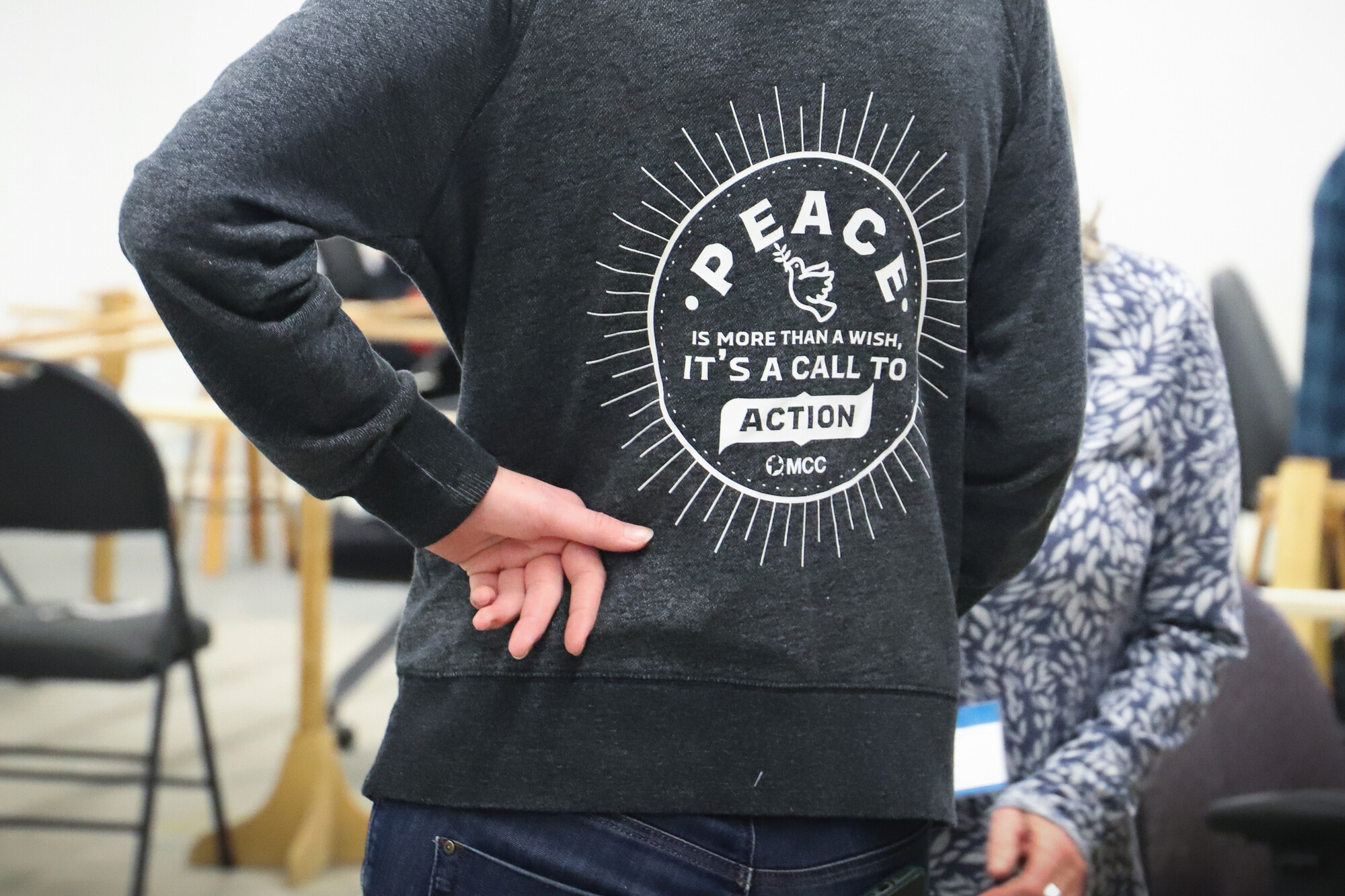Three keys to navigating the election with love

I have spent the last five years working for Mennonite Central Committee’s office in Ottawa advocating with our nation’s political leaders every day. I am more comfortable than most people having conversations about politics, which is why I was surprised by the sense of unease that came over me recently when my church prayed for the newly re-elected premier of Ontario. It felt different hearing about politics in that context.
I think it is because politics can be a powerful tool to divide people. It often concerns issues that are close to our hearts and our identities. The stakes of otherwise friendly conversations can feel high when they get “political.” This is especially true when they occur within communities that are important to us.
With a federal election on the horizon, many of us are likely to find ourselves in conversations about the challenges facing our country and the world. I want to share three practices I have found helpful in my experiences talking with our elected leaders and folks in my own community.
1. Listen with curiosity and compassion
Listening is an essential spiritual practice that guides us and shapes our understanding of the world. In the book of James, followers of Christ are called to, “… be quick to listen, slow to speak and slow to become angry.” (James 1:19 NIV) This is a countercultural approach in stark contrast to a political environment where whoever speaks loudest wins.
It also encourages us to look closely at our motivations and ask, “What is it that I really want from this?” The world tells us that our desire should be to win, to prove ourselves right. However, these conversations look totally different when grounded in a desire to build a healthy community seeking God’s will together.
I recently had the opportunity to sit down with a member of Parliament (MP) to discuss MCC’s work. I went into the meeting anticipating there could be significant differences of opinion between us. As I listened to him speak, I was struck instead by our similarities. Below the surface level differences, there was a deep foundation of shared values that just needed to be uncovered. I left that conversation filled with hope for the good we might be able to accomplish together.
2. Speak with authenticity and integrity
It is important that we are honest about our convictions and where they come from. Listening with curiosity and compassion does not mean that we can’t speak up about issues that are important to us. Here I often find myself returning to Paul’s encouragement that in “…speaking the truth in love, we will grow to become in every respect the mature body of him who is the head, that is, Christ.” (Ephesians 4:15 NIV).
This verse points again to motivation, and it calls for a high level of self-awareness. We aren’t called to hide away from the truth in the name of civility. Paul’s words call us to ensure that our truth telling builds up God’s people and is rooted in a desire to build right relationships with God and one another. When done in love, voicing a different opinion can be an opportunity to build a stronger relationship and a stronger society.
3. Act for the good of my community, here at home and around the world
When election ads seem to cover just about every inch of available space, I am constantly reminding myself of the bigger picture. Voting is an important way for us to influence policies that can have a significant impact, but it is only one of the ways that I am working for the good of my neighbours, both in Canada and around the world. One small way that I seek to work for the good of my community is by supporting restorative justice initiatives, which I’ve seen transform the lives of people and communities for the better.
With all the focus as well on individual good, acting out of the community we share with our global neighbours also matters. Our actions can have a big impact, and I want to encourage you to seek out ways of working for good that bring you to life!
It is beautiful when we come together as people of faith to work for the good of our communities. I would encourage you to join me in pledging to approach this election period with compassion, authenticity and love for our neighbours. I think we will be amazed by what happens!
Mackenzie Graham works for Mennonite Central Committee in the Peace & Justice Office. In recent years, he has attended Waterloo Mennonite Brethren Church, Ottawa Mennonite Church and North Park Community Church in London.

